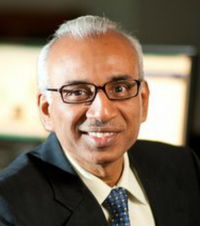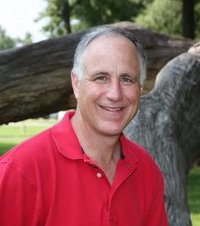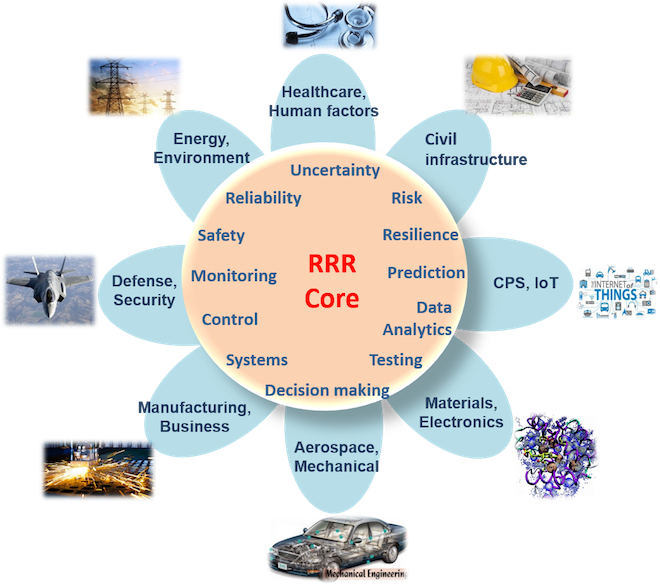A new master’s degree from Vanderbilt University School of Engineering will prepare students to meet increasing workforce needs in risk, reliability and resilience engineering.
The Risk, Reliability, and Resilience (RRR) Engineering professional master’s degree program is expected to be of great interest. Companies have been asking whether the School of Engineering has such a program for years, said John R. Murray Professor of Engineering Sankaran Mahadevan, a prominent expert in the field who will direct the program with Mark Abkowitz, a professor of civil and environmental engineering.
“Industry has to keep up with new advances in uncertainty and risk modeling, data analytics and information fusion to provide the state-of-the-art solutions in risk assessment,” said Mahadevan, a professor of civil and environmental engineering.

The 12-month, 30-hour interdisciplinary program aims to put graduates on a fast career path in companies in a variety of industries, including the aerospace, automotive, maritime, manufacturing, oil, chemical, power transmission, medical device, infrastructure planning and emergency response sectors. It will start in August 2018 and be overseen by the Department of Civil and Environmental Engineering.
The RRR field covers a wide range of questions, such as assessing a given system’s capacity to meet demand, predictive modeling, collecting and analyzing data for better decision-making and evaluating how trustworthy those models and data are.
Vanderbilt is one of only a handful of universities to offer a program like this, at a time of critical need. The application opportunities are vast, including an aging civil infrastructure stressed from use and environmental factors; natural hazards occurring with greater frequency and intensity; new threats emerging in the areas of security, communication and finance; new materials, devices and processes with no history to guide risk-related decisions, such as internet-connected medical devices; and an ever-increasing complexity of systems that push performance limits and scarcity of full-scale test data.
Broadly speaking, the RRR program will train practitioners with the skills they need to engineer solutions that are safer, more durable and more responsive to stress—whether that stress is malware or a hurricane.

The program is suited to recent graduates in engineering or the math and physical sciences who aspire to jobs and leadership positions in industry and government as well as industry-based professionals who want to pursue a career path in RRR.
“Demand for RRR talent and skills is already considerable and on the rise across multiple engineering disciplines,” Mahadevan said. “Companies need more RRR talent than they can get.”
Mahadevan has been instrumental in cementing the School of Engineering’s reputation as a national and international leader in this rapidly evolving area, which incorporates engineering, physical sciences, mathematics, statistics, computer science, economics, law and social sciences.

“We envision a flexible academic curriculum that cuts across multiple departments and allows students to tailor their studies to personal interests and goals by selecting courses from different application areas,” Mahadevan said.
Candidates for the M.Eng. degree will be able to tailor their studies to their interests and the needs of their employers or potential employers but all students will be required to take courses in RRR foundations and applications, as well as management, law and policy. They also must complete a capstone project in civil, electrical, environmental, mechanical, or biomedical engineering, or computer science.
Nearly 40 faculty members from the School of Engineering, plus the Law School, Owen Graduate School of Management, the School of Medicine, and the departments of earth and environmental science and economics are expected to participate in the program.
Vanderbilt already has expertise in all the key areas associated with the field; organizing them into a specific program of study in risk, reliability and resilience engineering was a “no-brainer,” Mahadevan said.
The School of Engineering, for example, already has led or is involved with several high profile federally funded RRR-related projects, in the areas mechanical and aerospace systems, transportation, disaster resilience, infrastructure, smart cities, electronics and software reliability, and advanced composite manufacturing, among others.
Extensive existing collaborations between basic sciences, engineering and the School of Medicine also may pave the way to leverage Vanderbilt’s RRR strengths into the area of medical applications and technologies and product certification.
For more information contact Mahadevan or Abkowitz or visit the RRR program site.
Media Inquiries:
Pamela Coyle, (615) 343-5495
Pam.Coyle@Vanderbilt.edu
Twitter @VUEngineering